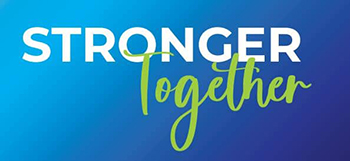WA has made little progress in closing the employment gap faced by people living with disabilities, despite strong evidence that doing so is good for business and the broader economy, a new report by CCIWA has found.
The report, Tapping the Talent Pool of People with Disabilities, found discrimination and a lack of knowledge about the benefits of hiring people with disabilities was driving the lack of progress.
The report found almost 61% of WA businesses surveyed said they had made “little to no progress” in increasing the number of staff with disabilities.
CCIWA Chief Executive, Chris Rodwell, said the report revealed many businesses want to hire people with disabilities, but face significant barriers.
“Improving employment opportunities for people with disabilities isn’t just the right thing to do, it’s the smart thing to do,” he said.
“Many businesses told us they simply lack the confidence to hire people with disabilities and there are a significant number of misconceptions about what’s actually involved.”
“Some may think hiring people with different needs will require them to make complicated modifications to their work practices but in reality, this is often not the case.
“There’s also a lack of support for employers who do hire people with disabilities and very little education or training for those who want to be more inclusive but don’t know where to begin.”
Companies that excel in disability inclusion are 28% more profitable than those that do not prioritise inclusivity, according to a 2018 study by Accenture. A report from Safe Work Australia also found the cost to businesses from absenteeism or sick leave was 34% lower for employees with disabilities compared with those who are not disabled.
The CCIWA report found small and medium-sized businesses faced the most difficulties in attracting and retaining people with disabilities.
Only 60% of WA businesses employ people with disabilities – the lowest of any underrepresented or minority group in the labour market.
The unemployment rate for disabled people in WA stands at 11.1%, rising to 20% for people with intellectual disabilities. This is compared with an unemployment rate of 5.3% for the general population when the most recent data was released in 2018.
Mr Rodwell, who is also the parent of two children with disabilities, said the economic and social dividends of boosting disability employment are far-reaching.
“It’s not just the individual and their employer who benefit, there’s a flow-on through to that person’s family, friends, carers and community, whether that’s through providing respite from caring duties, allowing family carers to enter paid work themselves or by boosting the person’s overall wellbeing,” he said.
“There is also strong data that shows a significant improvement in overall employee wellbeing and productivity when an organisation has disability-friendly employment practices.
“The impact of improving access to meaningful, mainstream employment for people with disabilities is clear, and the WA business community is crying out for more support to help them navigate the process.”
Some businesses cited a lack of applicants with disabilities as one factor contributing to the lack of progress, suggesting more work is needed to give people with disabilities more confidence to enter the workforce.
The report highlights discrimination in the workplace as one reason people with disabilities do not apply for jobs.
The report also recommends changes to the disability support pension, which sees recipients lose 50 cents of every dollar they earn above $204 per fortnight.
“There are a range of things Governments can do to make it easier for both the employer and the disabled employee,” Mr Rodwell said.
“Ultimately, it comes down to a shift in our overall attitudes towards people with disabilities.
“They are valuable, diverse, and capable of making a real contribution across the economy and are a significant untapped resource in our labour market.”


